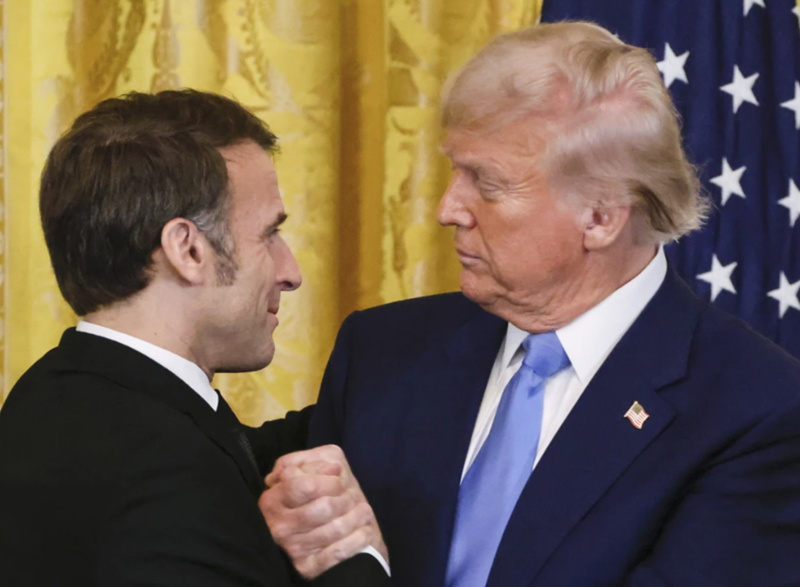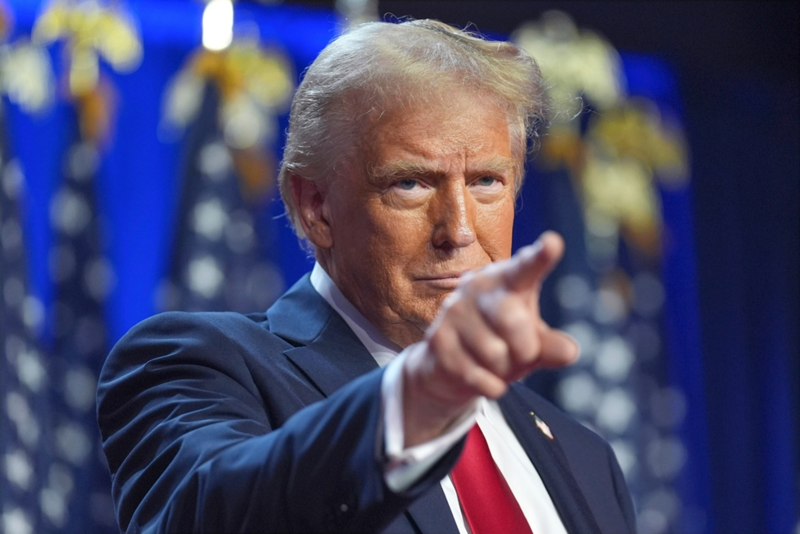US-Ukraine Reach Consensus over Critical Minerals
Input
Modified
A Strategic Play: The U.S.-Ukraine Minerals Deal Macron's Gambit: Europe's Struggle for Strategic Autonomy The New Global Order: Achieving a Balance Between Power and Interest

A Strategic Play: The U.S.-Ukraine Minerals Deal
Ukraine and the United States have reached an agreement on a critical minerals transaction, a high-stakes geopolitical maneuver that seamlessly integrates military strategy with economic ambition. The agreement, which provides the United States with access to Ukraine's extensive mineral deposits, has caused diplomatic repercussions on both sides of the Atlantic, causing European leaders to reevaluate their security strategies. The agreement is more than just an economic arrangement; it signals a shifting global power dynamic, as French President Emmanuel Macron advocates for a more significant European role in Ukraine's future and President Donald Trump seeks an agreement that counters U.S. financial assistance.
The United States and Ukraine have reached a preliminary agreement after months of negotiations. This agreement permits American firms to exploit Ukraine's mineral resources, which include lithium, rare earth elements, and titanium—essential components of high-tech industries and defense manufacturing. The control of these materials is a substantial advantage in the global technological and military competition, as they are essential for the production of semiconductors, batteries, and advanced weaponry.
The agreement is a critical economic sustenance for Kyiv; however, it is accompanied by certain conditions, including the absence of clear commitments regarding U.S. military assistance and long-term security guarantees, which President Volodymyr Zelensky had advocated for. Rather, the agreement merely confirms Washington's aspiration for a "free, sovereign, and secure Ukraine," leaving the issue of ongoing military assistance unresolved. Ukraine may find itself in a precarious position if the political winds in the United States alter in the absence of concrete security assurances.
President Trump, who is scheduled to meet with Zelensky in Washington, has conceived of the agreement as a chance for the United States to recoup a portion of the billions of dollars in aid that has already been provided to Ukraine. Additionally, he has suggested the deployment of peacekeeping forces in Ukraine, a proposal that continues to be highly controversial. Moscow has categorically rejected the notion, asserting that any NATO-affiliated presence in Ukraine is a red line. Some European nations have expressed their readiness to deploy peacekeeping forces, despite Russia's reservations, provided that a more comprehensive diplomatic agreement is reached.
The minerals deal demonstrates a broader U.S. strategy of reshaping Ukraine's role in the conflict and leveraging its resources for economic gain, in addition to its immediate implications. This is consistent with Trump's overarching "America First" foreign policy strategy, which emphasizes economic benefits from strategic partnerships. However, this transactional approach has sparked apprehension in European capitals, as leaders are concerned that it may weaken the unity of the West in its opposition to Russia. The level of commitment that Western allies are willing to provide may be influenced if Ukraine's mineral wealth is perceived predominantly as an economic asset rather than a strategic necessity.

Macron's Gambit: Europe's Struggle for Strategic Autonomy
European leaders, particularly Macron, have endeavored to establish a more autonomous security stance as the U.S. adjusts its support for Ukraine. Macron's visit to Washington was characterized by a transparent message: Europe must not only provide Ukraine with support, but also be prepared to assume a leadership position in the security landscape of the country in the post-war era. Macron cautioned against any resolution that would expose Ukraine to future Russian aggression, stating, "Peace is not a surrender."
A European-led peacekeeping force in Ukraine is included in Macron's proposal, which would represent a substantial departure from the conventional reliance on U.S. military leadership in European security matters. The potential for a more autonomous European security initiative is a reflection of the growing frustration in EU capitals over Trump's unpredictable approach to Ukraine policy, despite the fact that NATO has been the bedrock of transatlantic defense cooperation. Macron has also endeavored to refute Trump's assertion that Europe has exclusively provided loans to Ukraine, emphasized that European nations have provided substantial direct financial aid, which accounts for approximately 60% of the total assistance.
The French president's stance is indicative of a more extensive change in the EU, as leaders are acknowledging that Ukraine's long-term security cannot be contingent upon U.S. benevolence. Despite the logistical and political challenges that persist, Germany, Poland, and the Baltic states have expressed cautious support for Macron's call. One of the most significant security policy shifts since the inception of NATO would be the establishment of an independent peacekeeping force in Europe.
Nevertheless, Europe's capacity to execute this vision remains dubious. Questions are raised regarding the initiative's financing, logistics of troop deployment, and the alignment of all EU nations. Certain nations are apprehensive about explicitly engaging in Ukraine without a clear indication of U.S. involvement, as they are concerned about the possibility of Russian retaliation. The difficulties of attaining genuine strategic autonomy are emphasized by the divergence of priorities within Europe.

The New Global Order: Achieving a Balance Between Power and Interest
A broader question lies at the core of these developments: how will the West balance economic interests, military commitments, and geopolitical strategy in a world where U.S. policy is becoming more transactional, Europe is pursuing strategic independence, and Russia remains an aggressive force on the global stage?
The minerals agreement presents Ukraine with a dilemma and an opportunity. On the one hand, the economic benefits and the ability to sustain the war effort could be achieved by securing American investment in its natural resources. Conversely, Kyiv's vulnerability is exacerbated by the absence of security commitments from Washington, which underscores the importance of European support. Ukraine is currently balancing its partnerships with both Washington and Brussels while managing ongoing threats from Moscow as the conflict continues to rumble on.
The situation in Europe emphasizes the necessity of a more cohesive security framework. The realization of Macron's vision could serve as the inception of a European security apparatus that is less dependent on U.S. leadership. Nevertheless, concerns persist regarding the EU's capacity to effectively execute such a strategy, as a result of logistical limitations and internal divisions. Given the EU's historically fragmented defense policies, the development of a cohesive military structure capable of deploying and sustaining forces in Ukraine would be a difficult task for European states.
Regarding the United States, Trump's strategy implies a readiness to negotiate with Russia on new terms, potentially at the expense of European unity. Trump is reshaping the conventional framework of U.S. foreign policy by negotiating directly with Putin and framing Ukraine's mineral wealth as a means to counterbalance American financial aid. This framework prioritizes economic benefit over long-standing strategic alliances. This change is causing concern among Washington's traditional allies, who are concerned that a more transactional approach could undermine collective security commitments.
The decisions made in Washington, Brussels, and Kyiv in the coming months will not only determine the fate of Ukraine but also reshape the global order for years to come, as the world observes the next moves in this geopolitical chess game. That much is certain. The alignment of these evolving strategies and the ability to effectively manage economic and security interests in an era of shifting power dynamics will determine whether the Western alliance emerges stronger or more fragmented.





















